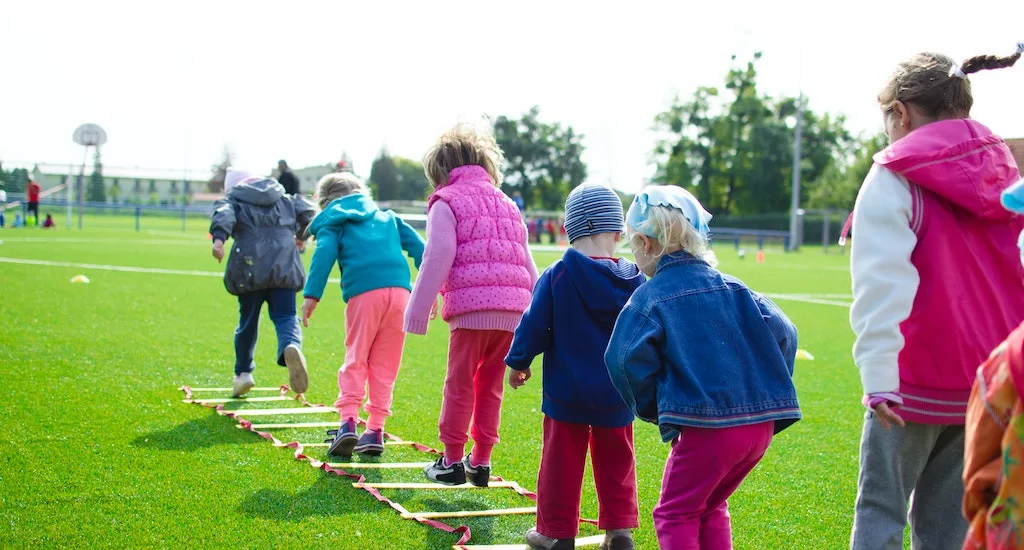Childhood milestones refer to the predictable physical, cognitive, and social developmental markets children experience as they grow and mature. Understanding these milestones is essential for parents, caregivers, and healthcare providers to assess a child’s growth and development, identify potential delays and provide appropriate support and resources.
Everything You Need to Know About Childhood Milestones
Physical Milestones
Physical milestones refer to the material changes in a child’s body as they grow and develop. These include height, weight, teeth, muscle control, and coordination changes. Physical milestones are often the most noticeable, and children begin to sit up, crawl, walk, run, and jump.
Cognitive Milestones
The term “cognitive milestones” often refers to the maturation of a child’s capacity for abstract thought and problem-solving. This includes their ability to understand and process information, recall memories, and make decisions. These skills develop rapidly in the first two years of life and continue to grow throughout childhood. Cognitive milestones include recognizing familiar objects and people, understanding simple commands, and engaging in pretend play.
Social and Emotional Milestones
A child’s growth in terms of their connections and interactions with others is known as a “social and emotional” milestone. This includes their ability to communicate, form relationships, and regulate their emotions. Social and emotional milestones include smiling, making eye contact, and expressing happiness, sadness, and anger. Children also develop the ability to understand and follow social rules, happiness, sadness, and anger. Children also develop the ability to understand and follow social rules, share toys, and form relationships with peers.
Factors that Affect Childhood Milestones
Several factors can influence a child’s development and the pace at which they reach milestones. These include genetics, health and nutrition, and their environment. The risk of a child experiencing developmental delays, for instance, increases if there is a history of such delays or disorders in the family, such as autism.
Every child is distinct and may achieve developmental milestones at various times. However, if a child is significantly behind in reaching milestones or is experiencing delays, it’s essential to seek the support of a healthcare provider.
Supporting Childhood Milestones
There are several ways to support a child’s development and help them reach their milestones. These include providing a supportive and stimulating environment, engaging in play and educational activities, and promoting healthy habits such as exercise and good nutrition. Parents and caregivers can also seek the support of healthcare providers, early childhood educators, and other professionals to help their child reach their milestones. Health appointments are necessary, such as visiting a doctor or dentist in San Diego or your area for routine check-ups.
Early Developmental Milestones to Look out for
Milestones in early childhood development generally reach specific ages and are organized according to the age range in which these changes usually occur. If you have a general notion of what to anticipate from children when they achieve certain milestones, you are more prepared to work with them and keep looking for healthy development.
Milestones for 2 to 4 Months Old:
- Tries to look at their parents and starts to smile
- Copies of some movements and facial expressions
- Turns in response to noise
- Follows motion with their eyes
- Begins babbling
- Holds their head up and can push off when lying on their stomach
Milestones for 6 to 9 Months Old:
- Identifies faces
- Sits without a cushion
- Has their own favorite toys
- Can grasp items between their thumb and index finger
- Can raise themselves to their feet while clinging onto things
Milestones for 1 Year-Old:
- Timid or anxious around strangers
- Make basic motions
- Begin to say “mama” or “dada”
- Observe straightforward instruction
- Discover hidden items
- Begin to take steps or stand up without assistance
Milestones for 18 Months:
- Initiate play by handing things to others
- Say a few different words
- Understand how to utilize everyday items like a spoon
- Use utensils to eat and can drink from their own cup
Milestones for 2 Years Old:
- Become animated around children
- Often heard repeating phrases or words
- Can sort shapes and colors
- Can run, climb, toss, and tiptoe
Milestones for 3 Years Old:
- Display a variety of emotions
- Can be considerate towards others
- Observes directions that have two or three stages
- Plays pretend games
- Can put on and take off their own clothes
Milestones for 4 Years Old:
- Like to explore new hobbies and engage in conversation
- Possess a rudimentary understanding of grammar
- Learn to count and can comprehend the concept of time
- Can pour, cut, and mash their meal under supervision
Milestones for 5 Years Old:
- Enjoys acting, dancing, and singing
- Speaks in whole phrases clearly
- Can print letters and numbers
- Can independently use a toilet
Milestones for 12 to 18 Years Old:
- Height, weight, and sexual maturity increase
- Boys begin to exhibit vocal changes, along with hair growth
- Girls begin to exhibit hair growth and their menstrual cycles begin
- Peer approval and appreciation become crucial
- Can comprehend abstract ideas
Conclusion
Milestones are essential for a child’s growth. These markers may be used by parents, caregivers, and medical professionals to assess a child’s development, spot delays, and provide appropriate support. It’s vital to remember that every child grows at their own speed and that many things in life may affect this. Fostering a child’s health, growth, and development requires creating a safe and engaging environment for them to learn, play, and grow.
